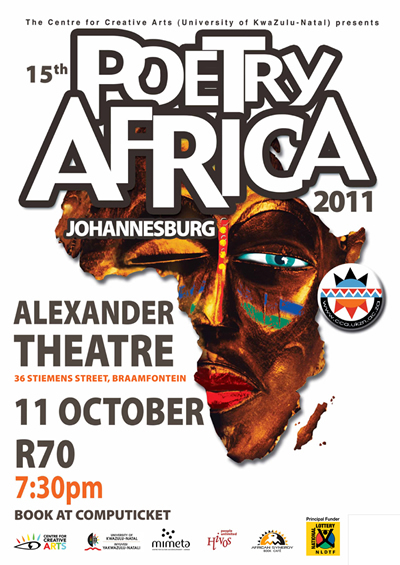Got any power? Got any water? Got any explanations that make sense? Maybe this one does. The statement below is from the Chairman of the Zimbabwe Power Company.
Chairman’s Statement
Zimbabwe Power Company 2nd October 2011 (10pm)
Starting with the end in Mind
It is important that customers are regularly informed of the stark reality of generation capacity in Zimbabwe. If the facts are understood then it is up to each individual to assess how best they can cope going forward into the next four to five years. There has been no meaningful investment in additional power since the 1980′s – 25years! Over the past two and a half decades there has been major growth in our population as well as a population drift to the urban areas.
The demand for power is around 1,800 MW at daily peak and this is growing. Local installed operational capacity today is around 1,200 MW – so we have a gap of 30%. As ZPC implement their program to stabilise and optimise the generation capacity at all its stations over the next 12 months the supply will increase to 1,500 MW – but in the meantime demand will continue to increase.
The ONLY way to close this gap is to install additional capacity and the shortest timeline to achieve this is four years. So I urge all customers and stakeholders to understand this and take whatever steps they can to mitigate against this stunted power capacity.
I suggest that an Energy Forum is established amongst major customer groups to facilitate dialogue around this critical aspect of life in Zimbabwe. We need to seek solutions that will help address this shortage: remove duties on solar power equipment, remove duties on low energy power devices, change the building by-laws to insist that all middle and high income new houses use solar geysers, insist that new mines install solar systems in their housing and other water heating processes etc. Most importantly to engage in a national education campaign on how to be more economical in our power usage.
Other power producers need to be encouraged to enter the market. Licenses have been issued but it seems there is little appetite to invest, why? We need to debate these issues.
An Update on Capacity Expansion
Kariba and Hwange
There has been a very positive response to the “Expression of Interest” for the expansion at both Kariba and Hwange. The “Expressions of Interest” closed in mid-September and our team of Hatch, KPMG Consortium and management are reviewing the documents before making recommendations to the State Procurement Board. This will then be followed by a formal tender to prequalified companies.
To ensure that the momentum is maintained it is vital that the Independent Regulator is put in place outside of the Ministry and that this new body engenders the confidence of potential investors.
Small Thermals
WAPCOS (an Indian consultancy group in the power sector) will finish the feasibility studies to re-power the boilers at the small thermal stations. We then intend looking for funding / joint venture partners to help us carry out these upgrades.
Recent History and the Current Situation
The month of September has not been a good month for ZPC and hence for you, the customer. Many of us over the last week have experienced up to five consecutive days of load shedding from 5am to 10pm. Why?
Before I continue, it is important to note that ZETDC (Zimbabwe Electricity Transmission and Distribution Company) hold the balancing of supply and demand / (load shedding) responsibility. They have a load shedding plan which is in turn based on their expectation of power supply from ZPC as well regional power utilities. ZETDC are forced to deviate from this plan when there is a sudden loss of power from their suppliers – power generation outages at times occur without warning and this throws out the planned load shedding regime.
In writing this statement I will endeavour to give facts, to not be defensive yet not shy away from giving news that you need to hear.
There are four main themes that run through the low generation this month and particularly over the last 10 days, namely: sluggish and below par (in my view) performance of the Original Equipment Manufacturers (OEM), underperformance of the procurement and logistic chain (both in-house and external suppliers), ongoing cash flow challenges (ZPC have only received approximately 80% payment this year for the energy it has generated and sent out, as payment of imports are given precedence) and finally the ongoing occurrence of regional power swings( surges) into our transmission systems where protection is insufficiently robust.
Some Detail
If detail is not what you want please skip to the next section.
Kariba Power Station
This station has been generating at full capacity for much of the last two years except for planned shut downs. In June this year a failure occurred in the generator winding of Unit 2. These are copper windings as thick as one’s arm. It can only be replaced by the OEM who had to design and outsource the replacement section. During this outage a crack was found in one of the turbine blades which only the OEM can repair. This repair work is under way and is scheduled for completion before mid-October. In my view the OEM did not, and could not be encouraged to, respond to our crisis with the urgency demanded by our unique situation or with the respect that a 30 year relationship deserves. Our MD has been in Europe this week to discuss this with the OEM.
During the week ending 25th September the protection on Units 3 and 4 tripped. Unit 4 was isolated from the transformer which it shares with Unit 3. Unit 3 was then brought back into service. After meticulous trouble shooting it was found that switch gear and control devices, which were replaced by another OEM during our maintenance shut downs earlier this year, had failed. Repairs to these devices are underway under guidance of the OEM from Europe.
So in summary Kariba has been down to four units for the last 10 days with the station expected to return to full capacity by mid- October.
Hwange Power Station
As I have mentioned in prior statements there is a significant amount of work still required to stabilise this station not the least of which is the Ash Disposal section of the process. As money becomes available we go to tender against a prioritised schedule of replacement components – some of which have lead times of up to one year!
We have lost the four Phase One (smaller) units over the last week to 10 days. Unit 1 due to the failure of the “Boiler Feed Pump” which is new and under warranty, Unit 2 due to a the failure of its thrust bearing, Unit 3 due to wear on its induction fans caused by the under-performing de-ashing system and Unit 4 due to the failure of its “Boiler Feed Pump”.
To exacerbate the situation the entire station was taken out by a surge out of Eskom (S.A) on Tuesday 27th September.
At time of writing this statement we now have two Phase Two (larger) units and one Phase One(smaller) unit feeding the grid. We expect to bring another unit back overnight (Sunday) and the fifth by Wednesday this week.
Small Thermal Stations
These stations are situated in Bulawayo, Harare and Munyati. Our major constraint in maintaining modest outputs from these stations continues to be the availability of coal from our three suppliers. All three suppliers assure us that their production will improve over the next two months. Should this not be the case we will have to consolidate and probably run only two of the three stations.
In the middle of this week NRZ went on strike. I must commend our management team and coal suppliers for their rapid response to this event. They mobilised over 40 trucks to haul the coal that was to move by rail.
The next 12 months
Major retrofitting and component replacement projects will continue over the next 12 months. WAPCOS (the Indian company that provides expert advice at Hwange) have provided an experienced project manager to help oversee these projects at Hwange. To execute these projects there will be extended planned outages of units on a sequential basis during the year ahead. For example the precipitators (ash handling) on Phase Two will be retrofitted over the next seven months therefore from the middle of October until May 2012 and one of the Phase two Units will be offline.
At Kariba the system that governs the turbine blades, in sympathy to the power demand, will be replaced on each unit (six weeks per unit) on a sequential schedule. This means that from mid-December until September 2012 only five of the six units will be online.
In addition, over the next 12 months, other units will need to be taken off line for shorter periods to undertake unit specific upgrades or repairs. There will also be the exogenous breakdowns.
So in summary the power supply regime will for the next 12 months will be much the same as it has been for the last 12 months – all in a bid to stabilise and optimise supplies in the medium term.
The refurbishment of the 40km pipeline from the Zambezi to the Hwange station remains a priority and is a one year project. The feasibility study was completed over two months ago and we await the outcome of possible of government-to-government funding with the government of India.
The Tariff
I wish to thank all stakeholders for their understanding on the need for a revised tariff after two and a half years of stagnation. The power woes of today are largely attributable to many years of suppressed earnings by this power utility. To have continued this trend would surely have led us into total darkness.
Sadly this increase in tariff as of 1st October will not translate into immediate improvements in the availability of power. Lead times for retrofitting projects can be many months.
Of equal importance is the positive message that this sends to investors: “Zimbabweans are prepared to pay for their power.” I urge all of you to take personal responsibility for your power usage. There seems to be a misapprehension that load shedding automatically results in a dramatic reduction in your power usage and hence cost. This will not be the case if you do not manage your consumption. While you sleep the power comes back on and heats geysers, runs fridges and pumps etc.
Board
The board of ZPC remains committed to its responsibilities for the company whose performance is critical to the economy of this country. We see our role as more than one of oversight and governance. We therefore spend time in mentorship roles as well as bringing our diverse skill-sets and experience to bear at an operational level when the situation demands. Arriving at solutions to the complex challenges that have been imposed on the company over the years (lack of investment in new capacity, foregone maintenance of existing infrastructure etc.) requires a team effort.
We have commissioned the “Institute of Directors Zimbabwe” to undertake a performance review of the ZPC board.
In Closing
I hope reading this statement improves your understanding of recent events and the challenges that all of us will face in the medium term – until additional generation capacity is installed.
It is essential that we find ways to hold dialogue across all walks of life on this key economic driver and household resource.
R. Maasdorp
Chairman ZPC











